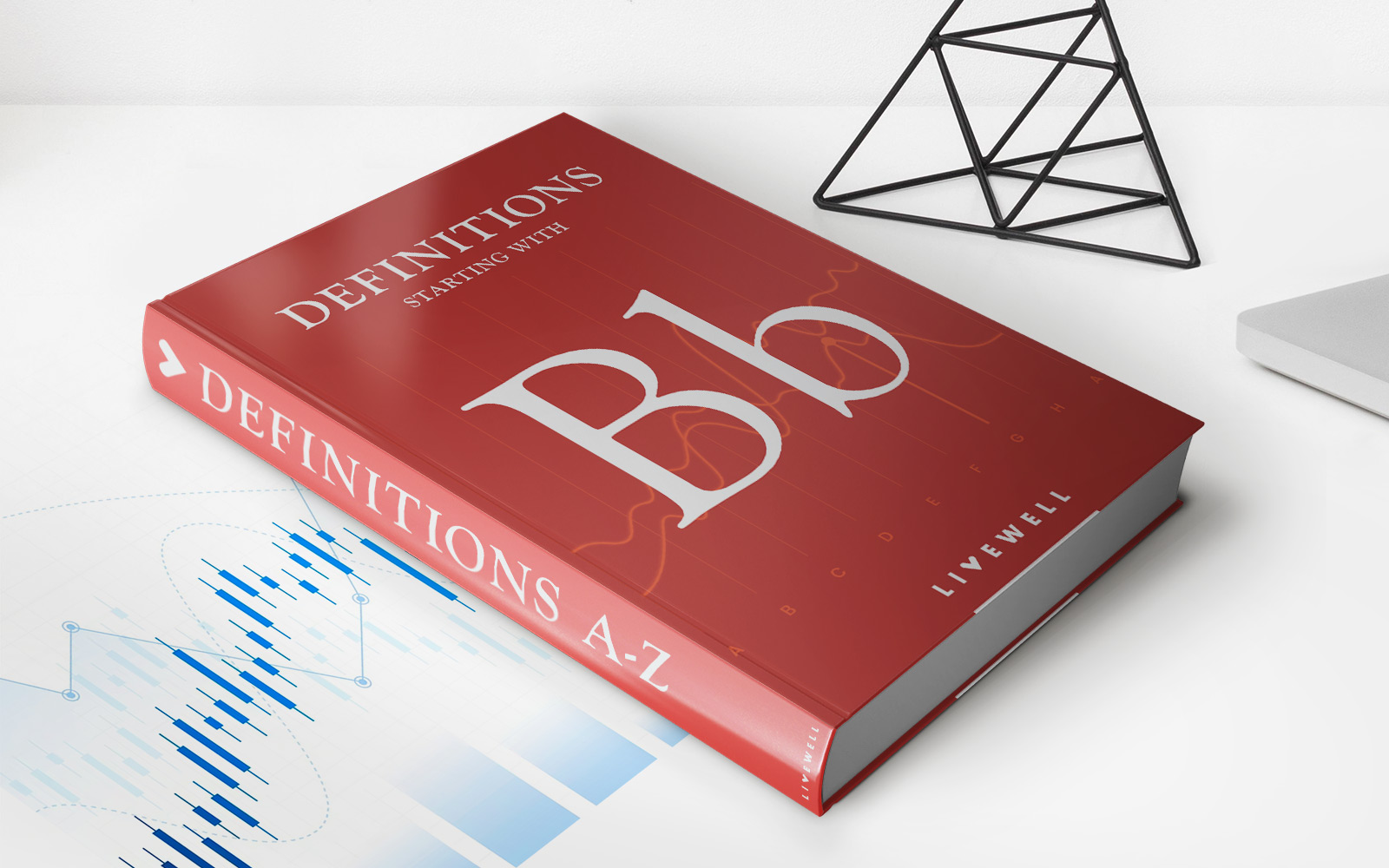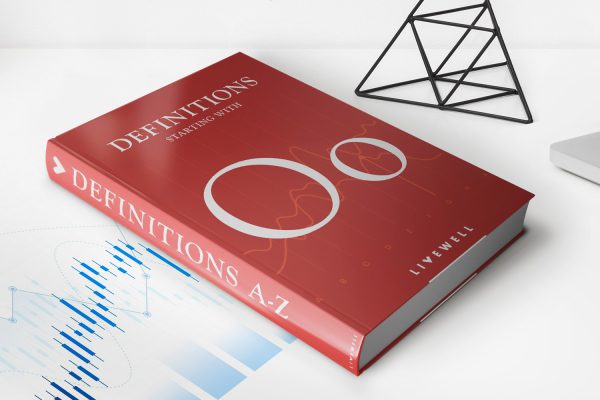Home>Finance>Why You Should Not Close Old Revolving Credit Cards


Finance
Why You Should Not Close Old Revolving Credit Cards
Modified: March 6, 2024
Discover why keeping old revolving credit cards open is beneficial for your finances. Learn the importance of maintaining a long credit history and how it impacts your financial health. Unlock the secrets to optimizing your credit score and financial stability.
(Many of the links in this article redirect to a specific reviewed product. Your purchase of these products through affiliate links helps to generate commission for LiveWell, at no extra cost. Learn more)
Table of Contents
**
Introduction
**
When it comes to managing your finances, the decisions you make can have a lasting impact on your credit score and overall financial well-being. One such decision is whether to close old revolving credit cards. While it may seem like a good idea to streamline your wallet and simplify your financial accounts, there are compelling reasons why you should think twice before closing those longstanding credit lines.
Old revolving credit cards, despite their inactivity, play a crucial role in shaping your credit history and overall creditworthiness. In this article, we'll delve into the benefits of keeping old revolving credit cards, the impact on your credit score, the significance of utilization ratio, the length of credit history, and the potential closing costs associated with shutting down these accounts. By understanding these key factors, you can make informed decisions that align with your long-term financial goals and credit management strategies.
So, why should you think twice before closing old revolving credit cards? Let's explore the compelling reasons and gain valuable insights into how these decisions can influence your financial standing and creditworthiness.
Benefits of Keeping Old Revolving Credit Cards
Old revolving credit cards hold significant benefits that can positively impact your credit history and financial standing. One of the key advantages of retaining these accounts is the positive influence they have on your credit utilization ratio. When you maintain old revolving credit cards with high credit limits and low or zero balances, it can effectively lower your overall credit utilization, which is a crucial factor in determining your credit score. Additionally, these accounts contribute to the length of your credit history, showcasing your ability to manage credit responsibly over an extended period.
Furthermore, keeping old revolving credit cards can serve as a testament to your creditworthiness and financial stability. Lenders and financial institutions often consider a lengthy and positive credit history as a favorable indicator of an individual’s ability to handle credit responsibly. By retaining these accounts, you demonstrate a long-standing relationship with creditors, which can enhance your credibility when seeking new credit or financing opportunities.
Moreover, old revolving credit cards may offer unique perks and benefits that may not be available with newer credit accounts. These benefits could include lower interest rates, rewards programs, or exclusive offers that add value to your overall financial portfolio. By maintaining these accounts, you can continue to leverage these advantages and potentially save money on interest payments or benefit from lucrative rewards programs.
Ultimately, the benefits of keeping old revolving credit cards extend beyond the accounts themselves, as they can play a pivotal role in fortifying your credit profile and positioning you as a reliable and creditworthy individual in the eyes of lenders and financial institutions.
Impact on Credit Score
The decision to close old revolving credit cards can significantly impact your credit score, often in ways that may not be immediately apparent. One of the primary factors affected by this decision is your credit utilization ratio, which measures the amount of available credit you are using. Closing old revolving credit cards reduces your available credit, potentially leading to a higher credit utilization ratio, which can negatively impact your credit score. This is particularly true if you carry balances on other credit accounts, as the reduction in available credit can increase the utilization of those remaining accounts.
Additionally, closing old revolving credit cards can impact the average age of your credit accounts, a key component of your credit score. The length of your credit history is a significant factor in determining creditworthiness, and older accounts contribute positively to this aspect. By closing these accounts, you may shorten the average age of your credit accounts, potentially lowering this portion of your credit score.
Furthermore, closing old revolving credit cards may affect the mix of credit types in your credit profile. Credit scoring models consider the diversity of your credit accounts, including credit cards, installment loans, and mortgages. By closing old revolving credit cards, you may alter the composition of your credit accounts, potentially impacting this aspect of your credit score.
It’s important to recognize that the impact on your credit score from closing old revolving credit cards can vary based on individual credit profiles and the specific details of each account. However, understanding the potential consequences on your credit score is crucial in making informed decisions about managing your credit accounts and overall financial well-being.
Utilization Ratio
The utilization ratio, also known as the credit utilization rate, is a critical factor in determining an individual’s credit score. It measures the amount of available credit being used, and a lower utilization ratio is generally associated with a healthier credit profile. Old revolving credit cards, especially those with high credit limits and low or zero balances, contribute to a lower utilization ratio, which can positively impact your credit score.
By keeping old revolving credit cards open, you maintain a higher total credit limit across your accounts, effectively reducing the percentage of credit being utilized. This demonstrates responsible credit management and financial prudence to credit scoring models, potentially leading to a higher credit score.
Conversely, closing old revolving credit cards can lead to a reduction in available credit, potentially increasing your utilization ratio. If you carry balances on other credit accounts, the decrease in available credit can elevate your overall credit utilization, which may negatively impact your credit score. It’s essential to consider the interconnectedness of your credit accounts and the potential repercussions on your utilization ratio when contemplating the closure of old revolving credit cards.
Understanding the role of the utilization ratio in shaping your credit score underscores the significance of maintaining a healthy balance between the credit you use and the credit available to you. By strategically managing old revolving credit cards and their contribution to your overall credit limit, you can positively influence your utilization ratio and, in turn, bolster your creditworthiness.
Length of Credit History
The length of your credit history plays a pivotal role in shaping your creditworthiness and overall credit score. Old revolving credit cards contribute significantly to the length of your credit history, showcasing your ability to manage credit responsibly over an extended period. These longstanding accounts serve as a testament to your credit management skills and financial stability, providing a positive reflection of your creditworthiness to potential lenders and financial institutions.
When you close old revolving credit cards, especially those that have been active for a substantial duration, you may inadvertently shorten the average age of your credit accounts. This can have implications for your credit score, as credit scoring models consider the average age of your credit accounts in their assessments. By maintaining old revolving credit cards, you preserve the longevity of your credit history, reinforcing your creditworthiness and demonstrating a proven track record of responsible credit management.
Furthermore, the length of your credit history reflects your experience in handling various credit obligations and financial commitments. Lenders often view a lengthy and positive credit history as an indicator of financial reliability and trustworthiness. By retaining old revolving credit cards, you present a comprehensive picture of your credit journey, showcasing your ability to navigate credit responsibilities adeptly over time.
It’s essential to recognize the enduring impact of the length of your credit history on your creditworthiness and the potential ramifications of closing old revolving credit cards. By preserving these longstanding accounts, you maintain a valuable asset in your credit profile, reinforcing your financial credibility and enhancing your prospects when seeking new credit opportunities or financing arrangements.
Closing Costs
When contemplating the closure of old revolving credit cards, it’s crucial to consider the potential closing costs associated with these actions. While closing a credit card account may seem straightforward, there are underlying financial implications that warrant careful evaluation.
One notable consideration is the impact of closing old revolving credit cards on your credit score and overall creditworthiness. As discussed earlier, closing these accounts can influence your credit utilization ratio and the average age of your credit accounts, both of which are integral components of your credit score. While the immediate financial costs of closing a credit card may be minimal, the long-term consequences on your credit profile and potential future financing opportunities can far outweigh any immediate benefits.
Additionally, closing old revolving credit cards may result in the loss of unique benefits and perks associated with these accounts. Some longstanding credit cards may offer exclusive rewards programs, favorable interest rates, or other financial incentives that contribute to your overall financial well-being. By closing these accounts, you may forfeit these advantages, potentially impacting your financial savings and benefits derived from these accounts.
Moreover, the closure of old revolving credit cards may lead to a reduction in your available credit, which can affect your financial flexibility and emergency preparedness. In the event of unforeseen expenses or financial challenges, a lower available credit limit due to closed accounts may limit your ability to address these situations effectively. This underscores the importance of carefully assessing the potential closing costs and long-term implications before making decisions about old revolving credit cards.
Considering the multifaceted impact of closing old revolving credit cards, it’s essential to weigh the potential costs against the perceived benefits and evaluate the broader financial repercussions. By taking a comprehensive approach to assessing the closing costs associated with these accounts, you can make informed decisions that align with your long-term financial goals and credit management strategies.
Conclusion
As we’ve explored the various facets of keeping old revolving credit cards, it becomes evident that these accounts hold substantial value beyond their immediate usage. From influencing your credit score to contributing to the length of your credit history, old revolving credit cards play a crucial role in shaping your credit profile and financial credibility.
The benefits of retaining these longstanding accounts extend far beyond their potential financial utility. They serve as a testament to your credit management skills, financial stability, and long-standing relationships with creditors. By maintaining old revolving credit cards, you showcase a proven track record of responsible credit management, bolstering your creditworthiness and positioning yourself favorably in the eyes of lenders and financial institutions.
Furthermore, the impact on your credit score, utilization ratio, and the potential closing costs associated with these accounts underscore the importance of carefully evaluating the decision to close old revolving credit cards. While the immediate benefits of streamlining your financial accounts may seem appealing, the long-term implications on your credit profile and overall financial well-being warrant thoughtful consideration.
Ultimately, the decision to keep or close old revolving credit cards should be approached with a comprehensive understanding of their multifaceted impact on your creditworthiness and financial stability. By recognizing the enduring value of these accounts and the potential repercussions of their closure, you can make informed decisions that align with your long-term financial goals and credit management strategies.
As you navigate the complexities of credit management and financial planning, it’s essential to leverage the insights gained from this exploration to make prudent and well-informed decisions regarding old revolving credit cards. By doing so, you can position yourself for sustained financial success and creditworthiness, leveraging the benefits of these longstanding accounts while strategically managing your overall credit portfolio.














